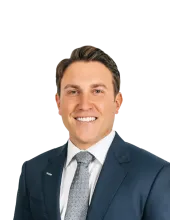
We know product liability cases.
When defective products cause harm, we fight to hold manufacturers accountable.
Start Your ClaimThe attorney shown above may not be licensed in your state. To find an attorney licensed in your area, please visit our attorney page.

The attorney shown above may not be licensed in your state. To find an attorney licensed in your area, please visit our attorney page.
Meet Our Defective Product Lawyers
Our experienced attorneys handle every aspect of your case, fighting for justice and fair compensation while you focus on recovery.
The attorneys shown in these photos may not be licensed in your state. To find an attorney licensed in your area, please visit our attorney page.
Our Results
Results may vary depending on your particular facts and legal circumstances.
Ways We Can Help
In Their Words
Based on select nationwide reviews.
Injury or damages
Defects in the product
Causation
What to Do After a Product Recall
If a recalled product has harmed you, take action. Learn how to protect your rights, document your case, and seek compensation for your injuries.
Fighting For the People
Backed by America’s Largest Injury Law Firm.
$25 Billion
Recovered for clients
nationwide700,000+
Clients and families
served1,000+
Attorneys across
the country1
Click may change your life

The attorney featured above is licensed in Florida. For a full list of attorneys in your state please visit our attorney page.
Results may vary depending on your particular facts and legal circumstances.
Product Liability Injury Types
Burns
Respiratory Issues
Fractures and Bone Injuries
Neurological Damage
Internal Organ Damage
Choking and Suffocation
Learn More
Injured and not sure what to do next?
We'll guide you through everything you need to know.
Get answers to commonly asked questions about our legal services and learn how we may assist you with your case.
What should I do after being injured by a defective product?
If you’ve been injured by a defective product, follow these steps to protect your health and legal rights:
- Seek Medical Attention: Prioritize your safety and get immediate medical care for your injuries. Be sure to keep detailed records of your treatment.
- Preserve the Defective Product: Keep the product in its current condition and avoid making any repairs or alterations, as it may serve as key evidence in your case. Whatever you do, do not return the product to the seller, distributor, or manufacturer until you’ve consulted with an attorney.
- Document the Incident: Take photos of the defective product, your injuries, and the scene of the incident. Write down what happened in as much detail as possible.
- Retain Receipts and Product Information: Save proof of purchase, product packaging, manuals, and warranties. These documents can help support your claim.
- Determine if This Was an Isolated Incident: Check the seller’s or manufacturer’s website for negative reviews or reports from other consumers who had similar issues with the product.
- Contact Morgan & Morgan: Consult with an experienced product liability lawyer who can guide you through the legal process and help hold the manufacturer accountable.
How do I prove a product was defective?
To successfully pursue a product liability claim, you must prove the following:
- The Product Was Unreasonably Dangerous: Show that the product posed a risk beyond what a reasonable consumer would expect or that the risk of using the product outweighed its benefits.
- You Used the Product as Intended: Demonstrate that you used the product as it was designed to be used or, at the very least, in a reasonably foreseeable manner.
- The Defective Product Directly Caused Your Injury: Provide evidence that the product’s defect was the direct cause of your injury, rather than another factor.
Evidence such as expert testimony, design documents, testing records, manufacturing reports, quality assurance and control documents, and accident reconstruction analysis can help strengthen your case.
What compensation can I recover in a product liability case?
Victims of defective products may be entitled to various types of compensation, including:
- Medical Expenses: Covers hospital stays, surgeries, medications, and ongoing treatment.
- Lost Wages and Loss of Earning Capacity: Compensation for income lost due to time off work during recovery, as well as financial recovery if your injury permanently prevents you from returning to work.
- Pain and Suffering: Compensation for physical pain, inconvenience, loss of enjoyment of life, and emotional distress caused by the injury.
- Punitive Damages: In cases of gross negligence, courts may award additional damages to punish the defendant and deter future misconduct.
Understanding the potential value of your claim can help you plan for your financial recovery. An experienced attorney at Morgan & Morgan can provide a free case evaluation to help estimate what your claim may be worth.
Food Poisoning and Product Liability
The number of product liability claims based on food-borne illnesses and food poisoning has been on the rise. Food poisoning and food-injury related claims are typically brought as product liability actions. Claims can be filed against anyone in the chain of distribution, from the manufacturer to the retailer, as well as any party who handles the food during this transition.
One of the biggest hurdles in a food poisoning product liability case is connecting the injury to the food. In most cases, the food will have been consumed or thrown away by the time the food poisoning or injury manifests. Evidence that can help to prove causation can include samples of food from the same batch from the manufacturer or supplier, evidence of bacteria or microorganisms in both the victim and the food supply, or, if possible, the actual product that was consumed.
A product liability attorney can help to collect the evidence necessary to substantiate your claim, as well as determine under which cause of action you should proceed.
How do I know if my injury was caused by a manufacturing defect or a design flaw?
An attorney can help investigate the specifics of your case and consult with experts to determine the nature of the defect.
What kind of evidence is needed to support a defective product lawsuit?
Determining whether your injury was caused by a manufacturing defect or a design flaw requires examining how the product was created and whether the defect was specific to your item or inherent in the product’s overall design. Here’s how to differentiate between the two:
Manufacturing Defect
A manufacturing defect occurs when something goes wrong during the production process. The defect is not part of the intended design but results from a mistake in assembly, materials, or workmanship. Injuries caused by manufacturing defects often stem from:
- A single faulty product or a specific batch that didn’t meet quality standards.
- Examples:
- A bicycle missing a bolt that causes it to collapse.
- A car airbag that fails to deploy due to an assembly-line error.
Proving a manufacturing defect requires evidence such as expert analysis, production records, and the defective product itself.
Design Flaw
A design flaw exists in the blueprint of the product, meaning every item made according to that design is potentially unsafe. The product may have been manufactured correctly, but its design makes it inherently dangerous for use. Injuries caused by design flaws are linked to:
- The product's structure, materials, or functionality being unsafe even when used as intended.
- Examples:
- A ladder that is unstable and prone to tipping over.
- A car with a high center of gravity that makes it prone to rollovers.
In design defect cases, attorneys may rely on engineering reviews, safety studies, and comparison with safer alternative designs to establish liability.
How to Determine the Cause
- Preserve the Product: Keep the product in its current condition to allow for expert inspection.
- Consult an Attorney: Our product liability lawyers at Morgan & Morgan work with experts to analyze whether the defect arose during manufacturing or was inherent in the design.
- Look for Recalls or Complaints: A history of similar incidents or recalls may indicate a widespread design flaw.
Both types of defects can lead to successful product liability claims, but identifying the correct type is essential to building your case. Consulting with an experienced attorney can provide clarity and help you pursue the compensation you deserve.
Why should I hire Morgan & Morgan?
At Morgan & Morgan, our team of experienced product liability attorneys has successfully represented countless clients in similar situations. As the largest personal injury law firm in the country with over 1,000 lawyers nationwide, we have the resources, knowledge, and dedication to fight for your rights.
We work on a contingency fee basis, meaning you won’t have to pay unless we win your case. Morgan & Morgan believes justice should be accessible to all, so our motto is the Fee Is Free™—you only pay if we win.
We take pride in holding manufacturers and corporations accountable for the harm caused by defective products. You shouldn’t have to suffer injuries or financial losses due to a product that was unsafe or poorly designed. Contact Morgan & Morgan today for a free case evaluation to explore your legal options.
Do I have to pay for a consultation with a defective product lawyer?
No. Consultations at Morgan & Morgan are completely free. We believe everyone deserves access to legal advice, regardless of their financial situation.
Hiring one of our product liability lawyers is easy, and you can get started in minutes with a free case evaluation on our site or by phone.
Who will be on my case team?
When you hire Morgan & Morgan, you don’t just hire a lawyer, you hire the largest personal injury law firm in the country with an army of over 1,000 lawyers and offices in all 50 states and Washington, D.C.
Your case will be handled by a dedicated team of professionals, including personal injury lawyers, paralegals, and support staff. You will be assigned a care team that includes a primary attorney who will oversee your case and ensure you receive personalized attention throughout the process.
When do I meet with my lawyer?
After your initial consultation, your care team will schedule regular meetings to discuss your case, provide updates, and prepare you for any upcoming proceedings. We are committed to maintaining open lines of communication and keeping you informed every step of the way.
These meetings can be handled in person, virtually, and by phone, depending on your case’s requirements and your ability to do so.
How much does it cost to hire Morgan & Morgan?
Morgan & Morgan’s product liability lawyers work on a contingency fee basis, meaning that there are no upfront fees or expenses until your case comes to a successful conclusion. That’s right—the Fee Is Free™, and you only pay if we win.
Our fee is a percentage of the settlement or verdict amount, ensuring we are motivated to achieve the best possible outcome for you.
What are common types of defective products?
Defective products span various categories, and recognizing the type of product involved is the first step in understanding your case. Here are some of the most common categories:
- Automobiles and Vehicle Parts: Defects such as faulty brakes, airbags that fail to deploy, or malfunctioning seat belts can result in serious accidents.
- Medical Devices and Pharmaceuticals: Defective implants, surgical tools, or medications with undisclosed side effects can cause harm or worsen existing conditions.
- Electronics: Faulty wiring, overheating batteries, or poorly manufactured devices can lead to fires, burns, or electric shocks.
- Consumer Products and Household Appliances: Products like stoves, heaters, and washing machines can malfunction, leading to injuries or property damage.
- Children’s Toys: Toys with small detachable parts, toxic materials, or choking hazards pose a significant risk to children.
If you’ve been injured by one of these products, you may have a product liability claim.
Can I still file a defective product lawsuit if I was partially at fault for the injury?
In some cases, yes. Many states follow comparative negligence laws, meaning your compensation may be reduced based on your level of fault. You will need to review the specifics of your case with an experienced attorney to help determine your level of fault, your local state laws, and whether you are eligible for compensation and how much.
How long does it take to resolve a product liability case?
The timeline varies depending on the complexity of the case, but it typically ranges from several months to a few years. With a free case evaluation, Morgan & Morgan can review the specifics of your case and provide an estimate of the time your case may take. However, the length of time can depend on various factors out of your control, such as the other side’s willingness to make things right.
What is the statute of limitations for filing a defective product claim?
The amount of time you have to file a product liability claim, known as the statute of limitations, varies by state and the specifics of your case. However, some exceptions may apply, such as in cases involving minors, government entities, or when the injury wasn’t discovered right away.
It's important to file your claim as soon as possible to preserve your legal rights. Failing to file within the statute of limitations could result in your case being dismissed, meaning you may lose the opportunity to recover compensation for your injuries.
Since deadlines can vary by state and situation, it's best to consult with a personal injury attorney as soon as possible after the incident to understand the specific timeline for your case. An attorney at Morgan & Morgan can help ensure your claim is filed correctly and on time.
Do I need to return the defective product to the manufacturer before filing a lawsuit?
No. In fact, you should keep the product in its defective condition as it may serve as critical evidence in your case. Your attorney can use this evidence to fight for the compensation you deserve.
If you or a loved one has been injured by a defective product, don’t wait. Contact us today for a free case evaluation.












